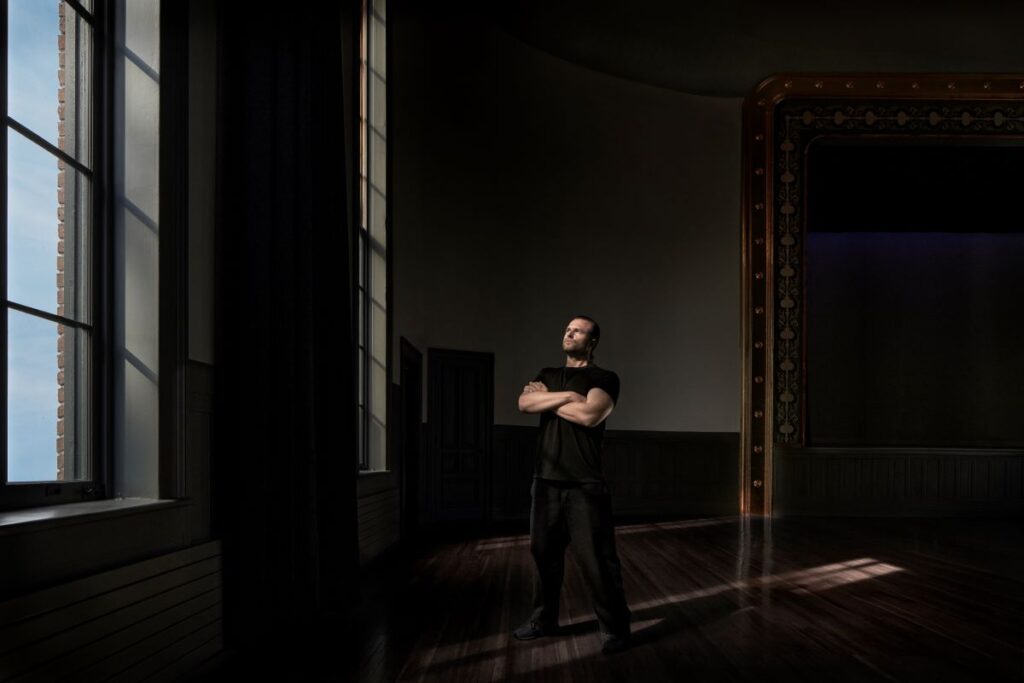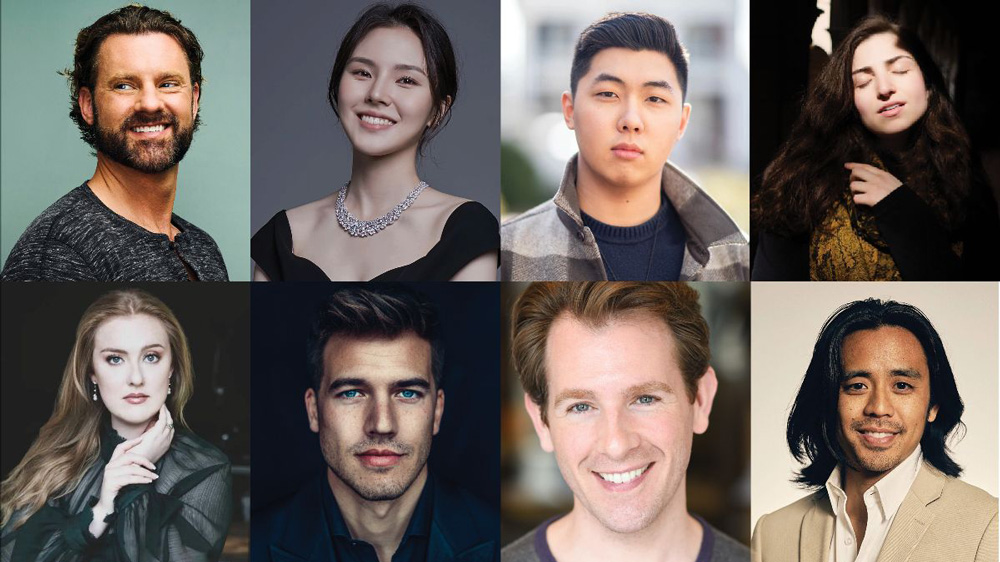Giulio Cesare, or Julius Caesar, is the second in a series of Baroque Handel operas, directed by R.B. Schlather, to be performed six times this spring, April-May at Hudson Hall. Trixie’s List sat down with R.B. Schlather and asked a few questions:
Why Opera?
In 2017, R.B. Schlather produced his first opera at Hudson Hall, Mother of Us All, an obscure two-act performance with music composed by Virgil Thomson to a libretto, or book, written by Gertrude Stein. The five performances sold out. After the success of Mother of Us All, R.B. Schlather thought, “Wow, we can really make something happen here in Hudson.”
“Hudson, N.Y. has the potential to become a Baroque opera destination.”
— The New York Times
R.B. Schlather and Hudson Hall decided to move forward with more operas, and start a series. In the fall of 2023, R.B. Schlather had an idea he “cooked-up during COVID” and produced Rodelinda, the first of three in a Handel opera series. Rodelinda was interpreted like a Victorian melodrama about grief and rage, and as Schlather explains, “a person’s life as they knew it, being taken away from them.”
Some were surprised by opera’s modern appeal. Schlather recounts, “After Rodelinda, I had a friend, who had never seen opera before, tell me they were elated. ‘This is way more fun than I thought opera was. Way more camp, over-the-top and more sexy. Wow!‘ Opera is so emotional, so visual. I love the music, but I also love the spectacle. There’s nothing else like it.”
Why Handel?
“Handel is my favorite opera composer,” says Schlather, “I think his music makes time stand still. His music is like pop music – it’s catchy, it’s got a bop. It’s groovy and fun. “
Schlather continues, “Handel’s operas are all different. They all have their own personality. Giulio Cesare is like a pulp fiction novel. There’s really juicy characters, there’s action and adventure, there’s danger and erotic intrigue – all set in a mysterious and exotic location. Giulio Cesare has moments of intense courage and heroism and is based on real people – Julius Cesar and Cleopatra.”
The Experience.
The city of Hudson may not lie among the great pyramids, desert sand, or Mediterranean sea of ancient Egypt – and few walk up and down Warren Street in a toga – but Schlather promises that the staging of Giulio Cesare at Hudson Hall “will capture the disorientation, spectacle, and unfamiliar feeling of being someplace totally outside your realm of experience and comfort zone.”
Schlather continues, “We are building an environment within the theater that will immerse the audience into something totally new. There will be some water. There will be some blood. There might be a splash zone for this show.”
Will Hudson Hall hand out Gallagher-styled plastic ponchos to the first three rows of audience members? Probably not. However, plan for an immersive, multi-sensory experience.
Giulio Cesare is in Italian with projected English translation. “Giulio Cesare,” says Schlather, “is one of Handel’s longest operas at four hours, but we are distilling it to two and a half, giving you hit after hit. It’s considered Handel’s blockbuster.”
You may already know the plot of Julius Caesar. If not, there are no spoilers here. Giulio Cesare is not really about the plot. “In eighteenth century London,” says Schlather, “Handel was writing Italian operas, bringing over hot, sexy, Italian singers and people went crazy! People didn’t really go for the characters or the plots. People went for the music.”
If you have never listened to opera before, Schlather explains the structure for the everyday person, “When listening to opera, especially the Baroque operas Handel wrote, you can find a pattern in the aria, an A-B-A, or Verse-Text-Verse, format similar to a contemporary pop song. When listening, you want to ask yourself, why is the character repeating this? Are they discovering something? Are they stuck? How is is it different? You’ll hear improvisation or ornamentation the second time around.”

It doesn’t matter if you don’t know opera, if you don’t speak Italian, or if you don’t know anything about Julius Caesar. Just come and experience it.
-R.B. Schlather
Why Hudson?
R.B. Schlather started visiting Hudson in 2011 and moved here full time in 2013. “I was really attracted to Hudson. People end up here who do things their own way. Hudson is a place for rebels, where you can make stuff happen. You can open up the gallery of your dreams, or create a little drag empire, and I thought to myself, maybe I could make some operas happen here. I also feel that everyone shows up for everyone’s work and everyone is living in community. It’s sweet.”
Hudson is also a hub, and Giulio Cesare shows off the talent found in the people of the Berkshires, the Tri-state area, and the Hudson Valley.

The Cast and Baroque Ensemble, Ruckus
The production is led by sought-after American countertenor Randall Scotting as Cesare and rising young star Song Hee Lee as Cleopatra. The cast also features Meridian Prall as Cornelia (Prall just won Third Prize at Operalia 2024 and is a 2024 Met Opera Finalist), Bard Music Conservatory alumni Chuanyuan Liu as Tolomeo, Rolfe Dauz as Curio, and Hudson area residents Matthew Deming as Nireno, Raha Mirzadegan as Sesto, and Douglas Ray Williams as Achilla.
Joining the company is Davon, the Hudson Valley-based improv dance artist, DJ, actress and producer. Davon will bring her singularly unique and unforgettable improv-based dance practice to the production, collaborating with Schlather for the first time.
The young, conductorless period instrument ensemble Ruckus has wowed audiences and critics with its fresh, visceral approach to baroque music. Ruckus’s core is a continuo group, the baroque equivalent of a jazz rhythm section: guitars, keyboards, cello, bassoon, and bass, joined by violin, flute, and oboe. In his New York Times review of last year’s Rodelinda at Hudson Hall, Joshua Barone declared Ruckus “stars” and went on: “With a mercurial, almost improvisatory spirit that responded to the drama in real time, they played with the fieriness and emotional charge of verismo.”
The creative team includes longtime Schlather collaborators: Joseph Cermatori as dramaturg, costume design by Terese Wadden, lighting by Masha Tsimring, scenic associate Erica Zhang, hair and makeup by Matia Emsellem, supertitles by Steven Jude Tietjen, and assistant director Michael Hofmann.
